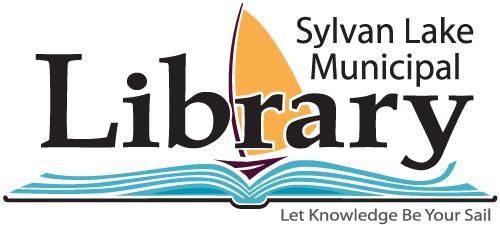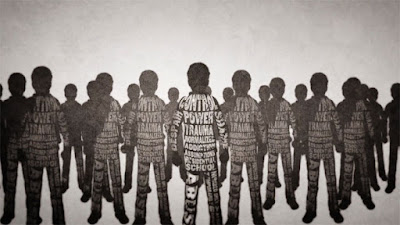Film is a beautiful artistic medium that allows people to explore worlds and circumstances beyond their own.
It also allows us to engage in and learn about the cultures, passions, struggles, joys, losses, and history of other human beings, whether they come from countries across the globe, or exist in our own backyard. They teach us about human beings that we might not speak to on a daily basis, but whom we might have formed opinions about. They challenge us to question our own biases, and unlearn some of the prejudices that come with lack of exposure to different cultures and people.
Let's put a spotlight on some Indigenous Films, available through our local library and the Parkland Regional Library, as well as films available through the National Film Board of Canada, which anyone can stream for free.
Indian Horse (2018): https://search.prl.ab.ca/polaris/search/title.aspx?ctx=99.1033.0.0.4&pos=5&cn=305845
An adaptation of Ojibway writer Richard Wagamese’s award-winning novel, this moving and important drama sheds light on the dark history of Canada’s boarding schools or Indigenous Residential Schools and the indomitable spirit of aboriginal people.
In the late 1950’s Ontario, eight-year-old Saul Indian Horse is torn from his Ojibway family and committed to one of the notorious Catholic Residential Schools. In this oppressive environment, Saul is denied the freedom to speak his language or embrace his Indigenous heritage while he witnesses horrendous abuse at the hands of the very people entrusted with his care. Despite this, Saul finds salvation in the unlikeliest of places and favourite winter pastime -- hockey. Fascinated by the game, he secretly teaches himself to play, developing a unique and rare skill. He seems to see the game in a way no other player can.
His talent leads him away from the misery of the school, eventually leading him to the Pros. But the ghosts of Saul’s past are always present, and threaten to derail his promising career and future. Forced to confront his painful past, Saul draws on the spirit of his ancestors and the understanding of his friends to begin the process of healing. - https://www.indianhorse.ca/en/film
We Can't Make the Same Mistake Twice (2016): https://www.nfb.ca/film/we_can_t_make_the_same_mistake_twice/
The rights of First Nations children take centre stage in this monumental documentary. Following a historic court case filed by the Assembly of First Nations and the Child and Family Caring Society of Canada against the federal government, Alanis Obomsawin exposes generations of injustices endured by First Nations children living on reserves and their families. Through passionate testimony and unwavering conviction, frontline childcare workers and experts including Cindy Blackstock take part in a decade-long court battle to ensure these children receive the same level of care as other Canadian children. Their case against Canada is a stark reminder of the disparities that persist in First Nations communities and the urgent need for justice to be served. - Alanis Obomsawin
Atanarjuat, the Fast Runner (2000): https://search.prl.ab.ca/polaris/search/title.aspx?ctx=99.1033.0.0.4&pos=1&cn=75847
This adaptation of an ancient Inuit legend was filmed in Inuktitut and directed by Inuit filmmakers - making Atanarjuat the first feature film of its kind!
Set
in Igloolik, in Nunavut, this is "a powerful drama, not a documentary,"
reminds the director Kunuk. "It demystifies the exotic, otherwordly
aboriginal stereotype by telling a universal story." The clothes,
spears, kayaks, sunglasses and dwellings were all painstakingly
researched. "We show how our ancestors dressed, how they handled their
dog teams, how they argued and laughed.. confronted evil and fought
back."
Many enthusiastic viewers have compared this epic story to The Iliad. In the words of one movie critic, "If Homer had been given a video camera, this is what he would have done!"
This film is also available in Inuktitut, with English subtitles through the National Film Board: https://www.nfb.ca/film/atanarjuat_the_fast_runner_en/
Home Fire: Ending the Cycle of Family Violence (2014): https://search.prl.ab.ca/polaris/search/title.aspx?ctx=99.1033.0.0.4&pos=1&cn=302062
Home Fire is a 37 minute documentary film that
explores family violence and restorative justice from an Aboriginal
perspective. Featuring commentary from Elders, community leaders, and
members of the justice system, Home Fire
examines the colonization of Canada, historic trauma, the western
justice system and grassroots healing programs in Aboriginal
communities. - https://www.nfb.ca/film/home_fire/
Club Native: https://search.prl.ab.ca/polaris/search/title.aspx?ctx=99.1033.0.0.4&pos=6&cn=152290
Tracey Deer grew up on the Mohawk reserve of Kahnawake with two very
firm but unspoken rules drummed into her by the collective force of the
community. These rules were very simple and they carried severe
repercussions: 1) Do not marry a white person, 2) Do not have a child
with a white person. - https://www.nfb.ca/film/club_native/
nîpawistamâsowin: We Will Stand Up (2019): https://www.nfb.ca/film/nipawistamasowin-we-will-stand-up/
On August 9, 2016, a young Cree man named Colten Boushie died from a
gunshot to the back of his head after entering Gerald Stanley’s rural
property with his friends. The jury’s subsequent acquittal of Stanley
captured international attention, raising questions about racism
embedded within Canada’s legal system and propelling Colten’s family to
national and international stages in their pursuit of justice.
Sensitively directed by Tasha Hubbard, nîpawistamâsowin: We Will Stand Up
weaves a profound narrative encompassing the filmmaker’s own adoption,
the stark history of colonialism on the Prairies, and a vision of a
future where Indigenous children can live safely on their homelands.See the 52-minute version here (CAMPUS subscription required).
Aboriginality: https://search.prl.ab.ca/polaris/search/title.aspx?ctx=99.1033.0.0.4&pos=17&cn=268676
Follow Dallas Arcand, an urban youth, as he heads down the mystical Red
Road to re-connect with new and traditional elements of First Nations
culture. Dallas is a world champion hoop dancer and hip-hop artist
aiming to connect urban Indigenous young people to their rural ancestral
histories. He's a 7th generation Cree from Alexander (Kipohtakaw) First
Nation. Directed by Dominique Keller, Aboriginality fuses animation by Dan Gies with live-action dance directed by Tom Jackson. - https://www.nfb.ca/film/aboriginality/
We Were Children: https://search.prl.ab.ca/polaris/search/title.aspx?ctx=99.1033.0.0.4&pos=3&cn=209685
As young children, Lyna and Glen were taken from their homes and placed in church-run boarding schools. The trauma of this experience was made worse by years of untold physical, sexual and emotional abuse, the effects of which persist in their adult lives. In this emotional film, the profound impact of the Canadian government's residential school system is conveyed unflinchingly through the eyes of two children who were forced to face hardships beyond their years. We Were Children gives voice to a national tragedy and demonstrates the incredible resilience of the human spirit. - Container Insert.
Also available to buy from the National Film Board: https://www.nfb.ca/film/we_were_children/trailer/we_were_children_trailer/
Fire Song: https://search.prl.ab.ca/polaris/search/title.aspx?ctx=99.1033.0.0.4&pos=19&cn=279129
Fire Song, the first Canadian narrative feature film to deal with two-spirited people
in the First Nations community, focuses on Shane (Andrew Martin), a
closeted Anishinaabe teenager who finds himself at a crossroads just
weeks before he’s set to leave his remote Northern Ontario Aboriginal
community for university in the city.
In moments, the film is
overwhelmingly grim. Shane’s sister has committed suicide, and his
mother is reeling from the tragedy. Shane’s girlfriend, Tara (Mary
Galloway), struggles to hold together a relationship she knows is
falling apart. Moving to the city is Shane’s chance to live openly with
his boyfriend David (Harley Legarde), the grandson of a community elder,
Evie (Ma-Nee Chacaby)—but there are countless obstacles in his way.
Fire Song
is relentless in its portrayal of depression, suicide, sexual assault,
drug abuse, and homophobia. The shockwaves of trauma felt throughout the
community, Shane’s escalating desperation, and claustrophobic interior
shots of David and Shane plotting their escape, or David’s mother
mourning in her daughter’s room suspend the viewer in each character’s
difficult reality. Yet, there are bright spots—fleeting glimpses of
David and Shane lying in the grass, lingering shots of the incredible
landscape—and ultimately Shane’s story is one of resilience. - https://www.pride.com/movies/2016/11/03/fire-song-brings-canadian-aboriginal-two-spirit-story-screen
When All the Leaves Are Gone: https://search.prl.ab.ca/polaris/search/title.aspx?ctx=99.1033.0.0.4&pos=24&cn=270048
As the only First Nations student in an all-white 1940s school,
eight-year old Wato is keenly aware of the hostility towards her. She
deeply misses the loving environment of the reserve she once called
home, and her isolation is sharpened by her father’s serious illness.
When Wato’s teacher reads from a history book describing First Nations
peoples as ignorant and cruel, it aggravates her classmates’ prejudice.
Shy and vulnerable Wato becomes the target of their bullying and abuse.
Alone in her suffering, she finds solace and strength in the protective
world of her magical dreams. - https://www.nfb.ca/film/when_all_the_leaves_are_gone/
Also available to stream for free via the National Film Board
To learn more about Canadian Indigenous Filmmakers, check out Indigenous Filmmakers and Actors: A First Nations Book for Young Readers: https://search.prl.ab.ca/polaris/search/title.aspx?ctx=99.1033.0.0.4&pos=1&cn=421973











